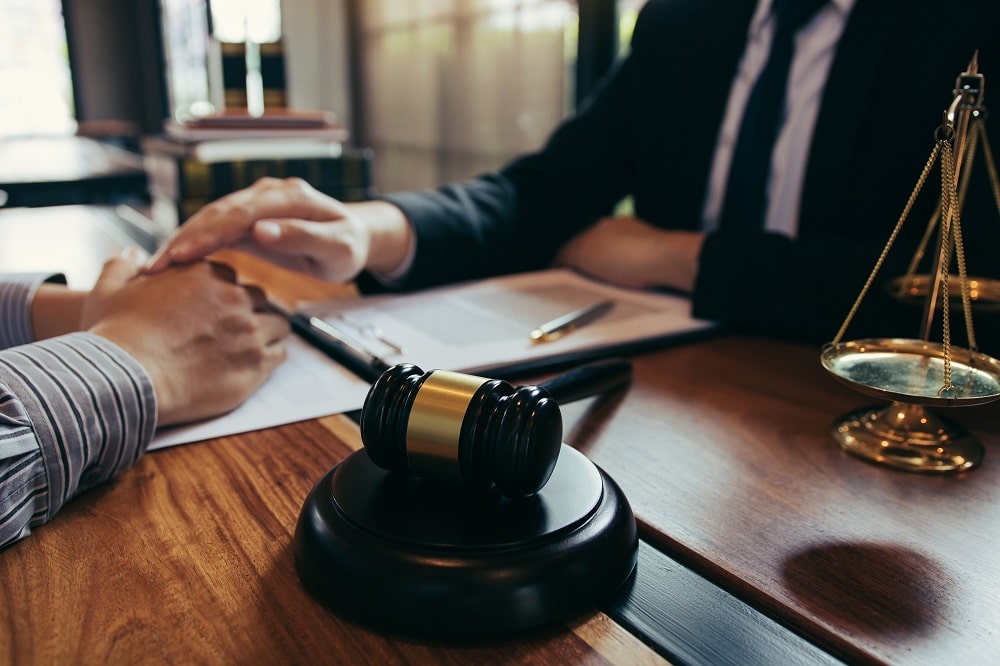Savannah Wrongful Death Attorney

Wrongful Death Lawyers
There is no easy way to deal with the sudden death of a loved one. The pain that comes with this loss can be devastating in any situation, but it’s tougher when they died due to the negligence of another in a motor vehicle collision. Not only has the loved one passed away, but now you will be pitted in a fight with insurance companies over whether to pay for a death claim and, if so, for how much.
Wrongful Death Attorney Savannah | Thomas M. Hunter
The death of a family member can have a wide range of consequences for the remaining relatives. The pain that comes with such a loss is difficult to bear, but a death in the family can also lead to financial difficulties. For most people, dealing with a loved one’s final expenses is an unanticipated challenge. Anyone who relied financially on their deceased relative could find themselves in severe financial trouble.
Thankfully, every state recognizes the right of certain survivors to file wrongful death cases. This civil case allows the surviving family to seek compensation from the negligent party for causing their loved one’s death. A wrongful death lawyer may be able to assist you if you believe your family is entitled to compensation.
Mr. Hunter, a wrongful death attorney at the Thomas Hunter Law Firm in Savannah, GA, has represented many survivors in wrongful death cases and helped those survivors obtain just compensation for the loss of their loved ones. Please do not hesitate to reach out to us if you need legal assistance due to the unexpected death of a loved one!
Wrongful Death: What You Need To Know

What Is A Wrongful Death Claim?
When a loved one dies as a result of a negligent or intentional (and, wrongful) act of another, a civil claim can be made against the wrongdoer for the value of the life that has been taken. Usually that claim is brought by a surviving spouse, children or others set forth in the state law where the death occurred, but it might also be brought by another representative of some description. Usually, a statute dictates who has the right to bring the suit and the priority of claims. These claims are claims for money damages.
A wrongful death claim is a civil case. If your claim is successful, the at-fault party (or that party’s insurer(s)) will compensate you financially. These claims can arise from any death caused by another person or entity’s negligence or intentional act.
A wide range of reckless behaviors might result in wrongful death claims. Car accidents, athletic accidents, violent crime, motorcycle accidents, and medical negligence are just a few of the most common wrongful death lawsuits.
How Does A Wrongful Death Claim Work?
Even though states approach wrongful death cases with some variation, the process is substantially the same in all jurisdictions. To begin with, only certain parties have the legal authority to file these claims. Wrongful death claims are different in each state. Claims based on the same facts could look very differently, depending upon where you live.
The early stages of a claim usually require an examination of who is entitled to bring the claim and a detailed investigation of the cause of the death. This would include identifying any and all persons or entities who may have contributed to the death and establishing how the death occurred. If the death occurred as a result of wrongful behavior, a claim would then be instituted. A detailed process would follow to establish the value of the life of the deceased, including the financial impact that the loss of the loved one has on his dependents and survivors. Once the total impact can be assessed, a demand for payment would be made to the at-fault party. This demand asks for money in exchange for a promise not to pursue a wrongful death lawsuit.
At this time, some wrongful death claims are settled. However, others will eventually lead to legal action. When a plaintiff files a wrongful death lawsuit, it may one or more years, to carry the case through a jury trial and to verdict.
What Exactly Constitutes A Wrongful Death?
Any careless or criminal act that causes the death of another person could be the basis of a wrongful death claim. In general, these claims are from irresponsible, reckless, or intentional misconduct and result in someone’s death. Wrongful death cases can result from any type of incident, such as car accidents or violent assaults.
What Qualifies As A Wrongful Death Lawsuit?
Although the definition of the term differs by state, the same kinds of situations are considered wrongful death claims across the country. In general, any fatality resulting from another person or entity’s negligence or intentional (wrongful) acts or omissions may qualify.
Wrongful death can take numerous forms. The majority of the time, they are the outcome of unintentional death. However, this does not mean that every unintentional death will result in a valid wrongful death lawsuit. Liability is based upon notions of fault and it is necessary to establish that someone or some entity was at fault. These mishaps must be the result of someone else’s negligent, reckless, or otherwise, wrongful behavior. It is true whether the underlying act was criminal or not. It’s not always clear if the loss of a loved one qualifies as a wrongful death lawsuit. Mr. Hunter, a wrongful death lawyer from Thomas Hunter Law Firm, can help you determine whether you have grounds to seek compensation or not.
Frequently Asked Questions
Who Is Entitled To File A Lawsuit For Wrongful Death?
The ability to file a wrongful death case differs from state to state. Every state prescribes who may be entitled to prosecute such a claim.
- Spouses
A wrongful death case is most often filed by the decedent’s spouse
- Children
Children of a deceased person often have the same legal rights as the surviving spouse in bringing a wrongful death claim. However, a child can only file a lawsuit in some states, if the surviving parent is unable or unwilling.
- Parents and siblings
Siblings and parents of the deceased are typically lower on the ladder when it comes to those entitled to bring a wrongful death claim. This is undoubtedly in recognition of the fact that they are not as close in familial relationship or dependency to the deceased as are spouses and children.
- Representative of the Estate
In some states, the estate’s official representative has the right to initiate a wrongful death lawsuit. In such instances, the estate may file the claim, but the proceeds recovered will go to the decedent’s heirs.
How Long Do Wrongful Death Claims Take To Resolve?
Wrongful death claims, like more ordinary personal injury claims, have statutes of limitation, but a number of factors will dictate how long that SOL may run. Since there is so much at state, suffice to say that a lawyer should be consulted immediately following the death of the loved one. Once a claim is in process, it is handled like any other personal injury claim and will follow the same path, more or less. It is not common in these situations to reach a settlement before filing a lawsuit or, if suit has been filed, then before the case gets to trial. These cases can take a long time to resolve.
Cases involving a dispute over liability take substantially longer to resolve. When a claim results in a lawsuit, the length of time to resolve it usually increases. For example, a wrongful death lawsuit could take years to conclude, depending on the court’s caseload and the time to prepare the case for trial.
Reliable Wrongful Death Attorney In Savannah, GA

Have you lost a loved one in a potentially preventable deadly accident? Contact the wrongful death attorney at Thomas Hunter Law Firm in Savannah, GA today!
We’ve been fighting for families who have lost loved ones due to someone else’s negligence for years. Our wrongful death lawyer, Mr. Hunter, has successfully resolved many wrongful death cases, ranging from terrible car accidents to medical malpractice and more.
Premises Liability Accidents
Property owners or occupiers are required by municipal, state, and federal regulations to maintain reasonably safe facilities in specific circumstances and to warn people of any harmful conditions. While these rules differ depending on where you reside, the basic underlying principle remains: property owners should make their land and buildings safe for visitors and people doing business there. When an injury happens on someone’s property due to unsafe, dangerous, or faulty conditions, a premises liability action may arise.

